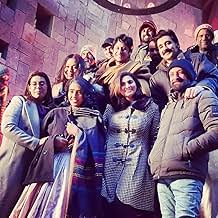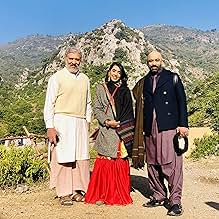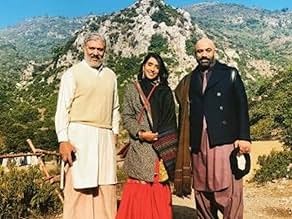As a European, I find it difficult to rate this movie.
I likely rate a 4 or a 7.
To accept the plot's circumstances, I feel it's required to be receptive to the mindset and practices of Asian remote rural areas.
Who would tolerate being compelled to give up his daughter, sister, and beloved without some sort of struggle, denouncing to some authority? I successfully challenged all authorities and typical unfair applications of laws that separated me from my children throughout a divorce. The non-existence of an organized resistance is beyond my comprehension, but I decided to accept that initial plot.
Then greatly romantic vibrant pictures merge with the harsh poor dusty captivity, giving the movie the cachet of a fable.
The contrast is quite upsetting. The religious parts of the traditions are not clearly laid forth. It is rather suggested that a group of local dominant men exploit traditions to impose their own personal interests and impulses. Their abusive behaviours are in no way religiously or morally motivated.
It is difficult to accept that the girl survived so many atrocities for years, on the dusty floor of a single room cabin without proper clothing, water, or a bed, only to peacefully fade away at the moment of her rescue.
This culminates in an inappropriate amount of melodrama and sentimentality included in may scenes.
However, the film left a deep impression, as I could identify so deeply with the victim's fate.
It effectively depicts how oppressive rules make it impossible to be respected, resulting in abusive punishments, uncontrollable emotional resistance, and an overall denial of responsibility. So much misery for so many involved, all in the name of honouring a tradition and a family.
So I gave it a 7 as it felt more like a bestiary with human beasts than a true story.























